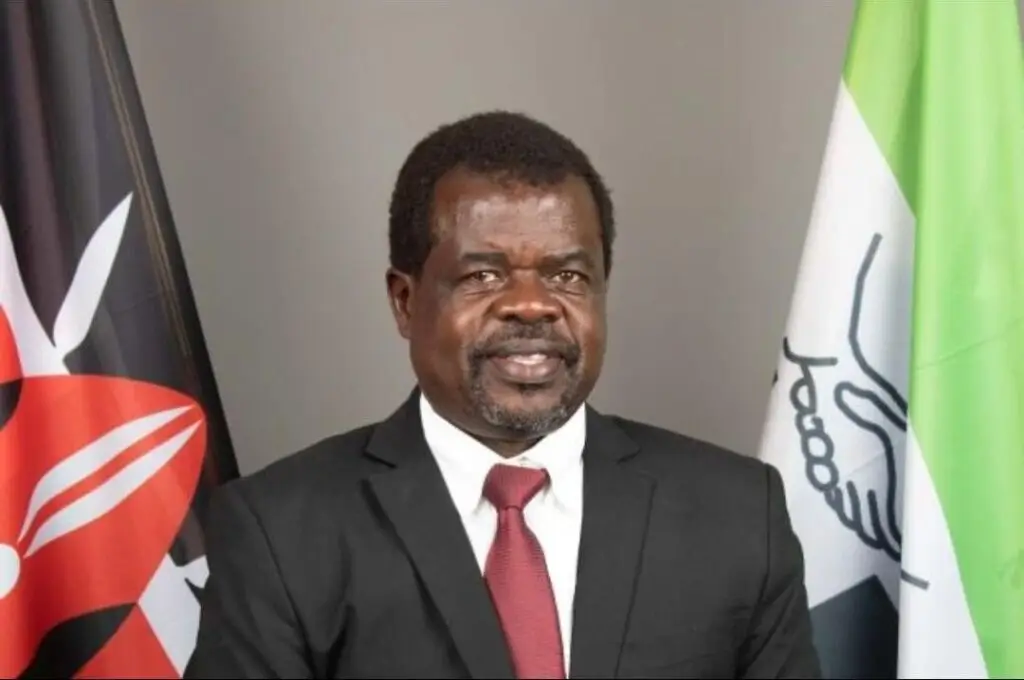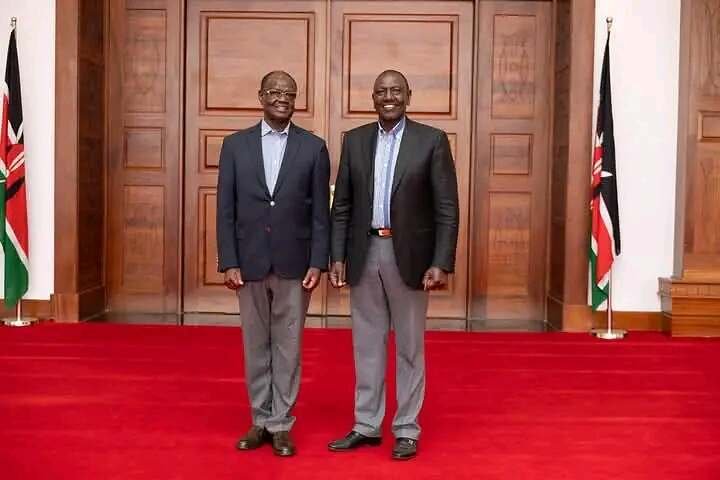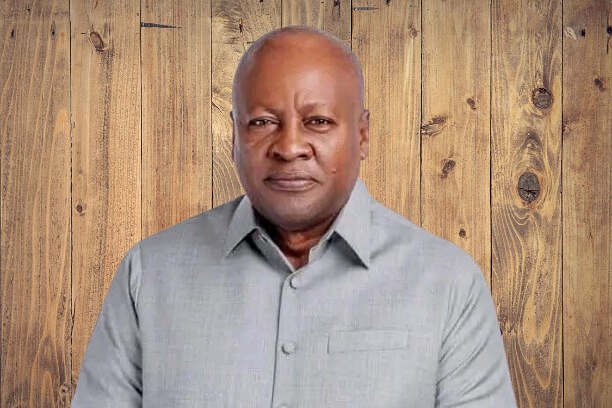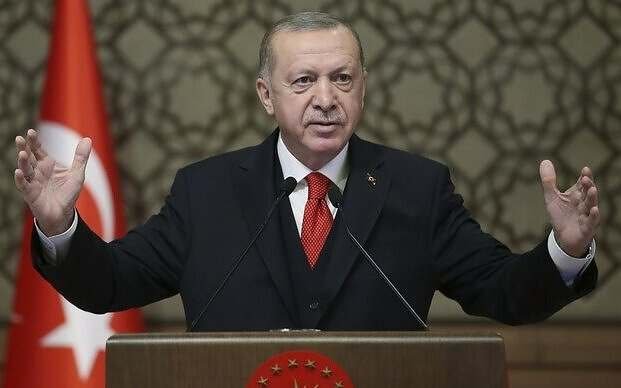
The political landscape in Kenya is experiencing significant shifts as Busia Senator Okiya Omtatah has officially declared his intention to run for the presidency in the 2027 elections. This announcement has generated considerable interest and speculation, as Omtatah is a prominent figure in Kenyan politics, known for his strong advocacy for justice and accountability. His decision to seek the highest office in the land marks an important moment not only for him personally but also for the broader political context within which he operates.
Okiya Omtatah has built a reputation over the years as a principled leader, having served in various capacities within the government and civil society. His background as an activist and a senator has equipped him with a unique perspective on the challenges facing Kenya and its citizens. As a vocal proponent of citizens’ rights, he has championed numerous causes aimed at promoting transparency and good governance. This history positions him as a candidate who is not only aware of the political intricacies in Kenya but also deeply invested in making a difference.
In his announcement, Omtatah emphasized the need for a transformative leadership that prioritizes the welfare of all Kenyans. His vision for the presidency appears to be rooted in inclusivity and responsiveness to the needs of the populace. The declaration of his candidacy has prompted discussions regarding his political platform, potential supporters, and the strategies he may employ to mobilize public backing as the elections approach.
As the political climate continues to evolve, Okiya Omtatah’s candidacy could have far-reaching implications for the 2027 presidential race. Observers will be keenly watching how this development unfolds, considering Omtatah’s past engagements and the expectations he creates within his base and beyond.
Background of Okiya Omtatah
Okiya Omtatah is a notable figure in Kenya’s political landscape, known for his commitment to social justice and civic rights. His political journey began long before he became a member of the Senate, rooted in his background as an activist and advocate for democracy. Omtatah’s efforts have often focused on challenging systemic injustices and advocating for the rights of marginalized communities. This dedication has positioned him as a champion for the Kenyan people, enabling him to cultivate a strong rapport with citizens who resonate with his ideals.
As a member of the Senate, Omtatah has distinguished himself by his articulate representation of public interests and his unwavering stance on various societal issues. His tenure has been marked by significant contributions in areas such as healthcare, education, and governance reform. Omtatah has utilized his position to influence legislation that directly addresses concerns affecting Kenyans, thus demonstrating his capability as a lawmaker who prioritizes public welfare. His performance in the Senate has earned him respect among his peers and constituents alike, further enhancing his standing within the political community.
In addition to his legislative achievements, Omtatah is recognized for his advocacy work, which has played a pivotal role in raising awareness around critical societal challenges. His initiatives often address human rights, anti-corruption measures, and the promotion of transparency in governance, aligning with the aspirations of many Kenyans. Omtatah’s unique blend of activism and political engagement not only showcases his diverse skill set but also fortifies his position as a credible candidate for the presidency in the upcoming 2027 elections. This background sets a solid foundation as he embarks on this significant journey, embodying the hopes and aspirations of a nation striving for positive change.
Reasons for His Presidential Ambition
Okiya Omtatah’s declaration to run for the presidency in 2027 is rooted in a desire to address pressing national issues that affect Kenyans deeply. His motivations are multifaceted, reflecting a comprehensive vision for the country’s future. At the core of Omtatah’s ambition is the aspiration to enhance governance and promote transparency in the political system. He has been a vocal critic of corruption and opaque political practices, issues that he believes undermine the integrity of governmental institutions in Kenya.
One of Omtatah’s primary goals is to advocate for policies that prioritize social justice and equitable resource distribution across the nation. He envisions a Kenya where citizens can access quality education and healthcare irrespective of their socio-economic status. By focusing on these fundamental pillars, Omtatah aims to inspire a more inclusive political discourse, encouraging civic engagement and participation in governance among the Kenyan populace.
Furthermore, his candidacy clearly reflects a commitment to the rule of law and human rights. Omtatah has built a reputation as a defender of civil liberties, often standing against policies that he views as detrimental to the democratic freedoms of Kenyans. His political journey demonstrates a consistent advocacy for legal reforms that empower citizens and strengthen judicial independence. He believes that these reforms are crucial to reviving public trust in government and bolstering the democratic framework of the nation.
Omtatah’s presidential ambition also stems from a broader vision of fostering peace and stability in Kenya. Recognizing the historical ethnic tensions and divisions, he intends to bridge gaps through dialogue and inclusive politics, promoting unity among diverse communities. His approach to governance channels a deep understanding of socio-political dynamics, which, if successfully implemented, could herald a transformative era in Kenyan politics.
Public and Political Reactions
Following Busia Senator Okiya Omtatah’s announcement regarding his intention to run for the presidency in 2027, there has been a diversified response from the public, political analysts, and fellow politicians. Many members of the public expressed excitement about Omtatah’s candidacy, viewing it as an opportunity for fresh leadership and a change in direction for the nation’s future. Social media channels have been abuzz with discussions, highlighting his track record on various issues, particularly his staunch advocacy for human rights and social justice. Supporters argue that Omtatah possesses the integrity and determination necessary to lead the country towards meaningful reforms.
On the political front, reactions have been mixed. Some politicians have openly supported the senator, recognizing his commitment to championing the interests of the marginalized. For instance, close allies have endorsed his candidacy, suggesting that his policies align with the needs of the electorate, particularly in rural areas. In contrast, others have expressed skepticism about his ability to galvanize enough support to secure the presidency. Critics contend that while Omtatah has made significant contributions in his role as a senator, transitioning to the presidency demands a broader coalition and appeal, especially in a landscape marked by entrenched political allegiances.
Political analysts are particularly interested in the implications of Omtatah’s candidacy within the broader electoral dynamics. Several experts suggest that his entry could tilt the political scale, potentially drawing supporters from established parties and complicating the electoral strategies of well-known contenders. There is speculation that Omtatah may attract young voters who are seeking transformative leadership. Observers are keenly watching how he will navigate the complexities of the upcoming campaigns while maintaining the momentum of public interest that he has recently generated. Overall, the reactions demonstrate a palpable anticipation about how Senator Omtatah’s presidential bid will influence the political landscape as 2027 approaches.
Omtatah’s Political Ideology
Okiya Omtatah’s approach to politics is deeply rooted in principles that prioritize democracy, accountability, and social justice. His political ideology reflects a commitment to fostering an environment where citizens can actively participate in decision-making processes that shape their lives and communities. Central to his vision is the belief that a robust democracy is essential for the realization of fundamental rights and freedoms for all Kenyans.
Accountability is another cornerstone of Omtatah’s philosophy. He advocates for transparent governance that holds public officials responsible for their actions. Omtatah asserts that a government must remain in tune with the needs and aspirations of its constituents. He argues that accountability mechanisms are vital for curbing corruption and ensuring that resources are allocated for the public good. His dedication to this principle has motivated him to challenge various injustices within the Kenyan government, showcasing his readiness to confront systemic issues head-on.
Moreover, Omtatah’s focus on social justice is an essential element of his political ideology. His advocacy spans issues such as equitable distribution of resources, protection of marginalized communities, and the promotion of human rights. He envisions a society where every individual has access to basic amenities, such as healthcare and education, devoid of discrimination. This commitment to social equity drives his desire to reshape societal structures in ways that empower the most vulnerable, thereby creating a more inclusive Kenya.
Overall, Okiya Omtatah’s political philosophy is founded on the belief that a just and democratic society can be achieved through collective engagement and accountability. As he positions himself for the upcoming presidential run in 2027, these principles will serve as the bedrock of his campaign and future policy initiatives aimed at transforming Kenya.
Challenges Ahead
As Busia Senator Okiya Omtatah declares his intention to run for the presidency in 2027, he is met with various challenges that could pose significant obstacles to his campaign. One of the primary internal issues he must navigate is the complex dynamics within his political party. As party politics often dictate the direction of candidates, Omtatah will need to garner support from influential party members and ensure alignment with the party’s platform. Disagreements or factionalism within his party could undermine his efforts and, potentially, his aspiration for the presidency.
Another internal challenge revolves around public perception. While Omtatah is a well-known figure, especially regarding his advocacy for human rights and social justice, he must work diligently to broaden his appeal among voters. Public opinion can be fluid, and he will need to engage effectively with the electorate to establish himself as a viable candidate capable of addressing their concerns. This includes addressing critical issues such as unemployment, healthcare, and education, which are paramount to voters but may not always align with his historical focus areas.
Externally, Omtatah faces stiff competition from established political figures who have a stronger foothold in the political landscape. Many potential contenders possess extensive political capital, including established networks, financial resources, and a history of governance, making them formidable opponents. Additionally, evolving economic conditions will significantly impact his campaign strategy. Economic challenges, like inflation and unemployment, can adversely affect voter sentiment, and Omtatah will need to present viable solutions to these pressing issues. Ultimately, navigating these challenges will require a robust campaign strategy, marked by adaptability and responsiveness to the ever-changing political climate.
Campaign Strategy Insights
Senator Okiya Omtatah has signaled a transformative approach to his campaign strategy for the 2027 presidential elections. Understanding the modern electoral landscape, he appears committed to building strong connections with the electorate through a multifaceted engagement strategy. One of the cornerstones of his initiative is fostering direct communication with voters. By organizing town halls and community forums, he aims to establish a dialogue that is both transparent and participatory, ensuring that voter concerns are addressed in real-time.
In addition to traditional outreach methods, Omtatah recognizes the immense power of social media in today’s political campaigns. By leveraging platforms such as Twitter, Facebook, and Instagram, he intends to reach a broader demographic, particularly the youth, who are increasingly involved in political discourse online. His strategy encompasses the use of targeted content that resonates with these groups, employing video narratives and interactive posts to create an engaging online presence.
Grassroots movements are another pivotal aspect of Omtatah’s strategy. By mobilizing local supporters, he aims to build a robust volunteer network that can assist with campaign activities ranging from door-to-door canvassing to organizing events. This community-driven approach not only fosters inclusivity but also nurtures a sense of ownership among constituents regarding the electoral process. Furthermore, Omtatah plans to kick off fundraising initiatives that tap into small donations from a wide base of supporters, in contrast to relying solely on large contributions from affluent donors. By diversifying his funding sources, he hopes to maintain independence and strengthen community ties.
Overall, Omtatah’s presidential campaign strategy appears well-rounded, focusing on genuine voter engagement, effective use of social media, and substantial grassroots mobilization. As he navigates the political terrain, his adaptability will be key in resonating with diverse voter groups across the nation.
Implications for the 2027 Elections
The declaration of Busia Senator Okiya Omtatah to run for the presidency in 2027 marks a notable event in Kenya’s political landscape, suggesting several implications for the forthcoming elections. Omtatah is known for his robust advocacy on human rights and governance issues, and his candidacy may reshape the electoral dynamics well in advance of the elections. With his unique platform, he is likely to attract a diverse voter base that resonates with his ideals, potentially increasing voter turnout among those disenchanted with traditional political narratives.
Omtatah’s entry into the race could compel other candidates to reevaluate their strategies, particularly those aligned with similar social justice and reform agendas. His candidacy may incite more progressive discourse within the Kenyan political setting, urging opponents to address critical issues such as corruption, inequality, and governance reform more assertively. This elevation of critical issues could lead to a more informed electorate, prompting candidates to propose more comprehensive policy solutions rather than relying on populism or traditional campaign tactics.
A competitive environment may emerge, fueled by Omtatah’s unique platform and campaign strategies. His focus on activism and his record as an independent voice in Senate positions him to potentially disrupt the established political order. Consequently, major parties could feel the pressure to attract a wider range of voters or risk losing their dominant positions to fresh ideas that may resonate with a more progressive audience. Moreover, as he rallies support, the possibility arises for collaborative movements among like-minded candidates which could form coalitions aimed at unseating incumbents.
In the buildup to the 2027 elections, Omtatah’s candidacy will likely catalyze discussions on important policy issues, navigate new paths for electoral engagement, and influence the political maneuvers of other candidates, thereby shaping the overall political climate in Kenya as citizens prepare to exercise their democratic rights.
Conclusion
Senator Okiya Omtatah’s recent announcement regarding his candidacy for the presidency in the 2027 elections marks a significant moment in Kenya’s political landscape. As a prominent figure in the country’s legislative framework, Omtatah has garnered attention for his advocacy on various pressing issues, including human rights and good governance. His declaration not only reflects his personal ambitions but also embodies a broader aspiration for transformative leadership in Kenya. The senator’s commitment to improving the lives of ordinary Kenyans resonates with many citizens who are seeking a change in direction from traditional political practices.
The anticipation surrounding Omtatah’s campaign is palpable, as voters are increasingly interested in candidates who promote transparency, accountability, and genuine societal advancement. The socio-political climate, characterized by demands for reform and justice, creates fertile ground for Omtatah’s vision to take root. His emphasis on inclusivity and comprehensive policymaking positions him as a potential unifier, appealing to a diverse electorate that seeks a leader attuned to the challenges facing the nation.
Moreover, this declaration acts as a catalyst for dialogue and engagement within the political sphere. With potential competitors and allies observing Omtatah’s moves, the coming months are likely to see a shift in strategies among the political elite. As he embarks on this journey towards the presidency, the senator’s success will depend on his ability to mobilize support and articulate a compelling vision that meets the needs of the Kenyan populace. The stakes are high, and the implications of his campaign could significantly influence the future trajectory of Kenya. Indeed, as the 2027 elections approach, Senator Omtatah’s candidacy could signal a pivotal shift in the governance of the country.






